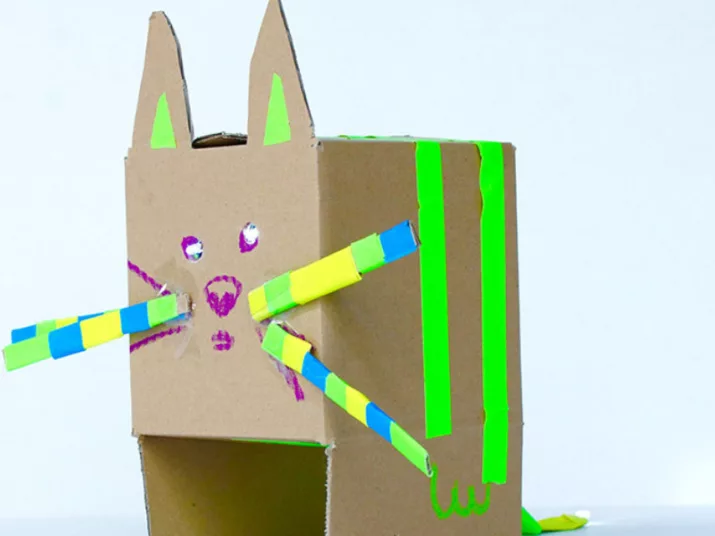
Children’s Programme in Cooperation with the “Little Scientists’ House”
The Futurium’s “Open House” on Saturday will also include a special programme for children. In cooperation with the “Haus der kleinen Forscher” (Little Scientists’ House) Foundation, the Futurium will give its youngest visitors the opportunity to discover the future in a playful way. Children can experiment at four different points developed by the “Little Scientists’ House”.

Saturday, 16 September 2017, 13:00 – 17:00
The programme is aimed at children aged three to ten years.
TORNADO IN A BOTTLE
Where there doesn’t seem to be anything, there is actually something: air! The fascinating whirlwind in a bottle offers an impressive sight for researchers young and old. And it demonstrates remarkable and spectacular phenomena: for even though we can’t see air, this doesn’t mean there’s nothing there. How can a storm gather in a bottle? Two bottles are joined together in an airtight way; one of them contains water. If you turn the bottles upside down, surely the water should flow into the empty lower bottle? But it doesn’t: the lower bottle has no room for water, because it’s already filled – with air. And this air has no place to go to make room for the water. By making circular motions the children can now generate a tornado or vortex. The air can escape upwards, right through the eye of the tornado, while circles of water flow downwards into the other bottle. A fascinating effect that will bring a lot of fun to visitors young and old.
EXPERIMENT POINT “PROGRAMMING SPHERE”
Discover computer science – experience life as a robot! Plan and control processes! Robots take work off our hands. For this purpose, they are controlled by programmes. Children know robots from stories or films. There they appear as fascinating metallic creatures that communicate with shining eyes, flashing buttons and mechanical sounds, while moving independently, if jerkily. Here the girls and boys play around with robots and their control systems, taking on the roles of both programmers and robots. By means of directional commands they plan paths on grids and try as robots to see if they can arrive at the desired destination.
EXPERIMENT POINT “QUICK ROUND TRIP”
When we visit the zoo we really want to see all the animals without having to walk too far – that is, we’re looking for the optimal route to take us all the way around. Similarly, if we need to carry out several errands one after the other – for example at the post office, the supermarket and the bakery – we want to spend as little time on our feet as possible and get back home quickly.
Here the children try out different strategies to find and optimise their solutions for a circular route involving several stops. Keep it short – the girls and boys work out how to go about finding the shortest possible route for their round trips from nail to nail. Is it always a good idea to head for the nail closest to the previous one? Or is it better first to work your way around the outer nails and then go to the inner ones? There are various strategies for finding a particularly short route. However, not every strategy leads to success in every situation.
EXPERIMENT POINT “SORT IT OUT”
Wherever can I find…? One method of searching is to exclude one by one certain sets of whatever is being sought. This is how we proceed, for instance, when we look up a term in the dictionary. However, it only works because the words are sorted alphabetically. What other things are capable of being sorted? Clothes in the wardrobe, pens on the desk, toys on the floor and even garbage.
There are many different ways of sorting a set. First of all, we need to determine the criteria according to which we wish to sort the set: for example, by size, by colour or by initial letter. With this practical idea developed by the Little Scientists’ House, girls and boys can experiment with the principle of sorting by comparing the effectiveness of different methods with regard to six objects.
ÜBER DAS HAUS DER KLEINEN FORSCHER
The non-profit foundation “Haus der kleinen Forscher” (Little Scientists’ House) is committed to high-quality early education in the fields of science, technology, engineering and mathematics (STEM) – with the aim of strengthening girls and boys for the future and enabling them to act sustainably. Together with its local network partners, the foundation offers a Germany-wide educational programme that supports pedagogical specialists and teachers in offering skilled assistance to children of kindergarten or primary-school age in their discovering, researching and learning. The Little Scientists’ House improves educational opportunities, promotes interest in the STEM area and professionalises pedagogical staff in this regard.
Text: Haus der kleinen Forscher.